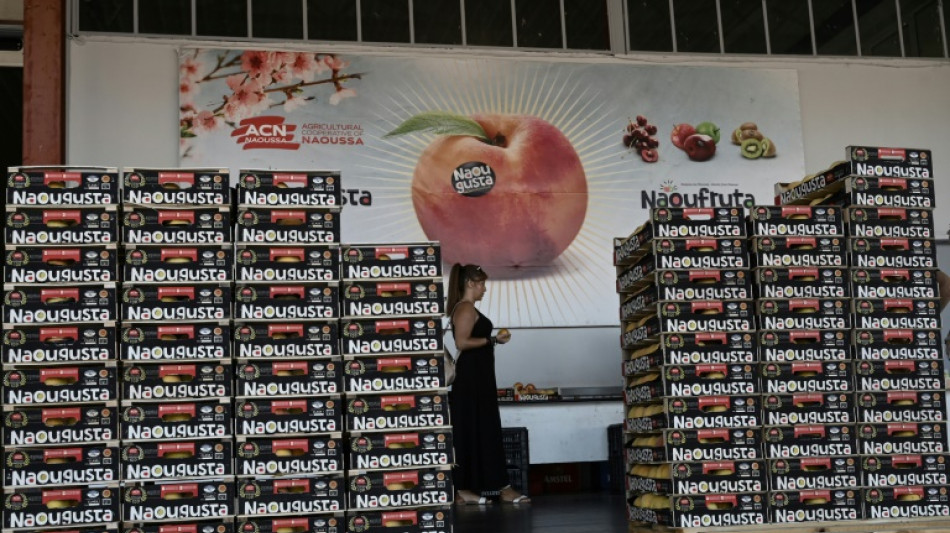
-
 Jamie Melham on Half Yours only second woman to win Melbourne Cup
Jamie Melham on Half Yours only second woman to win Melbourne Cup
-
Myanmar scam hub sweep triggers fraudster recruitment rush

-
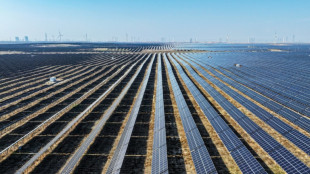 Biggest emitter, record renewables: China's climate scorecard
Biggest emitter, record renewables: China's climate scorecard
-
Floods strand people on roofs as typhoon pounds Philippines
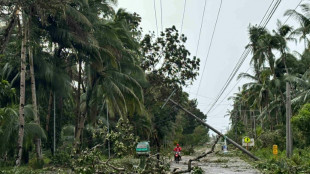
-
 Asian markets swing as trades eye tech rally, US rate outlook
Asian markets swing as trades eye tech rally, US rate outlook
-
South Korea to triple AI spending, boost defence budget
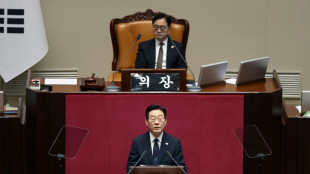
-
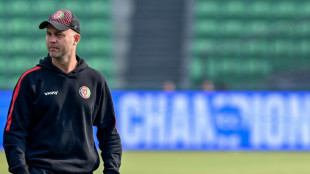 Trott to leave as Afghanistan coach after T20 World Cup
Trott to leave as Afghanistan coach after T20 World Cup
-
Late queen's fashion to go on show at Buckingham Palace
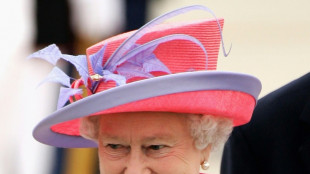
-
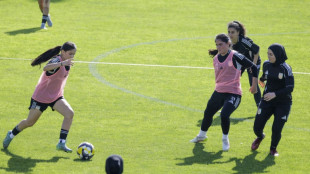 In Morocco, exiled Afghan women footballers find hope on the pitch
In Morocco, exiled Afghan women footballers find hope on the pitch
-
EU scrambles to seal climate deal ahead of COP30
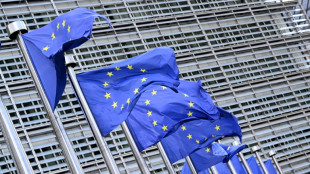
-
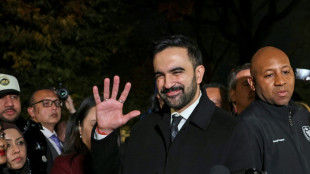 New Yorkers expected to pick leftist Mamdani in stunning election
New Yorkers expected to pick leftist Mamdani in stunning election
-
Pining for Pinochet: how crime fanned nostalgia for Chile's dictator

-
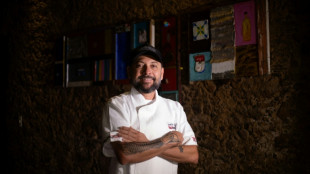 Why an Amazon chef said no to a vegan dinner for Prince William event
Why an Amazon chef said no to a vegan dinner for Prince William event
-
Cement maker Lafarge on trial in France on charges of funding jihadists
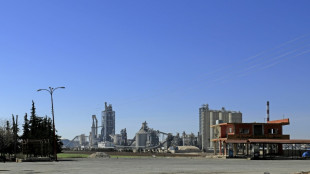
-
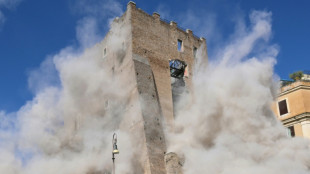 Worker dies after medieval tower partly collapses in Rome
Worker dies after medieval tower partly collapses in Rome
-
Run-machine Labuschagne in form of his life ahead of Ashes
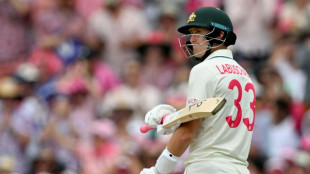
-
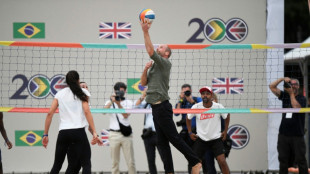 Prince William plays football, volleyball in Rio on climate trip
Prince William plays football, volleyball in Rio on climate trip
-
Jamaicans mobilize aid in aftermath of Melissa's wreckage
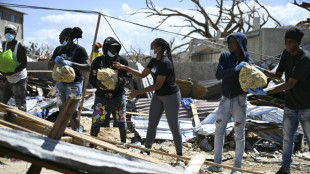
-
 Starbucks cedes China control to Boyu Capital
Starbucks cedes China control to Boyu Capital
-
Worker rescued after medieval tower partly collapses in Rome
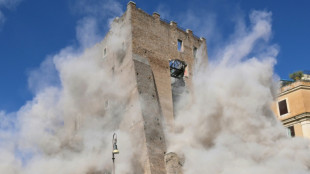
-
 'Wild at Heart' actress Diane Ladd dies at 89
'Wild at Heart' actress Diane Ladd dies at 89
-
Xhaka lifts Sunderland into fourth after Everton draw

-
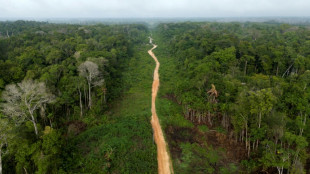 Brazil records biggest annual fall in emissions in 15 years: report
Brazil records biggest annual fall in emissions in 15 years: report
-
Victor Conte, mastermind of BALCO doping scandal, dead at 75: company

-
 Trial opens in 1st US civil case on 2019 Boeing MAX crash
Trial opens in 1st US civil case on 2019 Boeing MAX crash
-
Mixed day for global stocks as market digests latest AI deals

-
 Barrett brothers out of All Blacks' clash with Scotland
Barrett brothers out of All Blacks' clash with Scotland
-
Medieval tower partially collapses in Rome, trapping worker
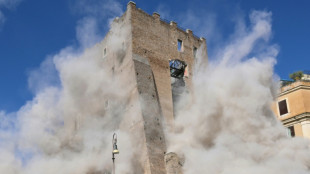
-
 Arsenal's Arteta says injured Gyokeres out of Slavia Prague tie
Arsenal's Arteta says injured Gyokeres out of Slavia Prague tie
-
Alonso says 'quality' Wirtz helped get him Real Madrid job
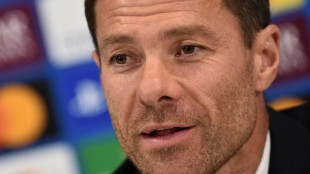
-
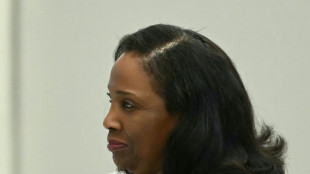 US Fed's Cook warns inflation to stay 'elevated' next year
US Fed's Cook warns inflation to stay 'elevated' next year
-
Blue heaven: huge crowds salute Los Angeles Dodgers in victory parade

-
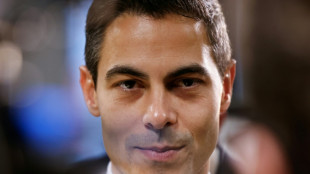 Dutch centrist Jetten clinches election win: final tally
Dutch centrist Jetten clinches election win: final tally
-
Mamdani extends olive branch to anxious NY business community
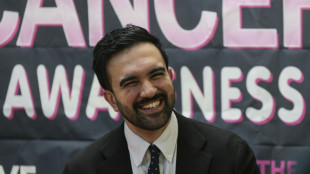
-
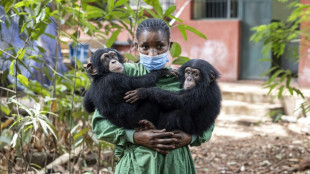 Sierra Leone chimpanzee sanctuary reopens after deforestation protest
Sierra Leone chimpanzee sanctuary reopens after deforestation protest
-
Shein bans sex dolls after France outrage over 'childlike' ones

-
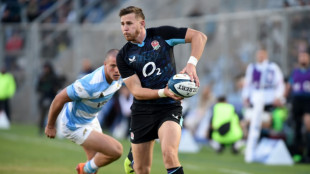 England full-back Steward doubtful for Autumn rugby clash with Fiji
England full-back Steward doubtful for Autumn rugby clash with Fiji
-
Bayern know how to 'hurt' PSG, says Neuer

-
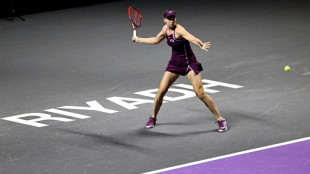 Rybakina downs Swiatek to reach WTA Finals last four
Rybakina downs Swiatek to reach WTA Finals last four
-
Ex-France international Ben Yedder to stand trial on rape charges
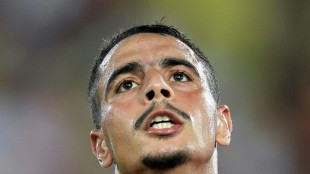
-
 Djokovic confirmed for ATP Finals, says Italian federation boss
Djokovic confirmed for ATP Finals, says Italian federation boss
-
Trent should be remembered for 'great' Liverpool moments, says Slot

-
 Stock markets diverge despite boost from AI deals
Stock markets diverge despite boost from AI deals
-
Prince William awed by Rio on climate-focused trip to Brazil

-
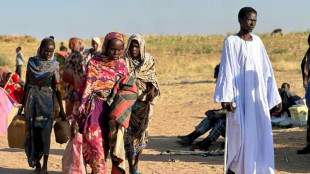 Violence in Sudan's El-Fasher could be war crimes, says top court
Violence in Sudan's El-Fasher could be war crimes, says top court
-
Rybakina downs Swiatek in WTA Finals

-
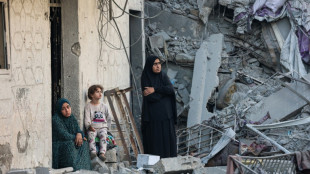 Turkey, Muslim allies say Palestinian self-rule key to Gaza future
Turkey, Muslim allies say Palestinian self-rule key to Gaza future
-
Tens of thousands shelter as typhoon slams into Philippines
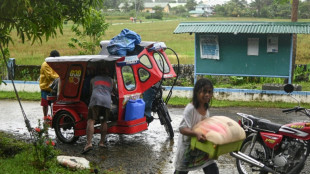
-
 Stock markets rise as tech sector buoyed by fresh AI deal
Stock markets rise as tech sector buoyed by fresh AI deal
-
Vitinha says PSG-Bayern Champions League clash will show who's 'best'
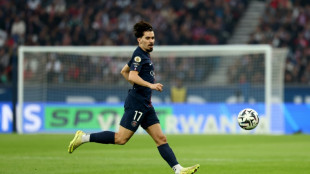

Fruit fly tests in Greece target invasive species threat
In a small persimmon orchard in northern Greece, scientists carefully open paper bags to release thousands of flies, in an experiment aimed at blunting the destructive impact of invasive new species.
The insects are sterile male Mediterranean fruit flies (Ceratitis capitata), a pest that annually causes significant damage to crops in Naousa, where a large proportion of Greece's prominent export, the peach, is produced.
But the project is ultimately aimed at curbing an even greater threat: fruit fly species from Asia, which have begun to make their appearance in southeastern Europe as climate change increases local temperatures.
The four-year, EU-funded project titled REACT brings together researchers from 12 different countries including the UK, Israel and South Africa.
The programme has a budget of 6.65 million euros ($7.8 million).
"Our approach is to locally eradicate Mediterranean fruit fly populations and then apply this knowledge to other species of interest, such as the oriental fruit fly and the peach fruit fly," said project participant Nikos Papadopoulos, a professor of Applied Entomology at the University of Thessaly.
- Bacterial supplement -
The male flies are grown at the University of Patras and are fed a bacterial supplement that makes them more active, resilient, and competitive, said George Tsiamis, the university's Laboratory of Microbiology Systems director, during a media tour organised in Naousa by the research team.
"This means they are more likely to survive in nature, fly longer distances, live longer, and, most importantly, mate with wild females," he added.
"Since the males are sterile, these matings produce no offspring, gradually reducing and ultimately eliminating harmful populations."
The Enhanced Sterile Insect Technique (Enhanced-SIT) is pesticide-free, environmentally friendly, and compatible with organic farming practices, according to Tsiamis.
Orchard owner Savvas Pastopoulos, an agronomist by training, has welcomed the project and has been tasked with winning over other Naousa fruit growers.
"At first, they were somewhat sceptical when they saw these bags with insects, but after it was explained to them, they understand," the 40-year-old told AFP.
"There have been seasons when, due to the Mediterranean fruit fly, we lost our production in just 15 days," he said.
Scientists note that invasive fruit flies are among the most destructive threats to global food production.
Two of the species, Bactrocera dorsalis (oriental fruit fly) and Bactrocera zonata (peach fruit fly), have caused massive economic damage worldwide.
Native to southeast Asia, they now threaten to invade Europe.
According to Papadopoulos, the oriental fruit fly has been repeatedly observed in Europe. Around Naples, several occurrences are reported every year, and the species has also been recorded in France and Belgium.
"The threat from these fruit flies is real for Mediterranean countries. We expect implications for nations like Greece, the Croatian coastline, Italy, Spain and Portugal," he said.
- Climate change risk -
Climate change makes matters worse as both invasive species thrive in warm weather, said Vasilis Rodovitis, a doctoral candidate at the Laboratory of Entomology and Agricultural Zoology at the University of Thessaly.
"These two insects were found to be capable of wintering in the warmer parts of Europe, such as Crete and Valencia," he said.
"In other temperate regions like Naples and Thessaloniki, we observed a small survival rate, but enough to establish new populations after winter, in early spring."
The team chose Naousa as the testing ground because the Mediterranean fly population in the region appears at low levels, resembling those during the early stages of a new species invasion.
"This is the first European field trial of sterile insect release on such a small, targeted scale using our improved sterile insects," said the project's coordinator Marc F. Schetelig.
"Our initial findings are very encouraging: the releases have shown a measurable reduction in the local pest population, which we will monitor this year and the next," he said.
The local community has already expressed strong support for an approach that avoids heavy pesticide use, said Schetelig, a professor of Insect Biotechnology in Plant Protection at the University of Giessen in Germany.
"This small-scale trial serves as a model for Europe: smart, local action yielding benefits across the continent," he added.
X.AbuJaber--SF-PST
